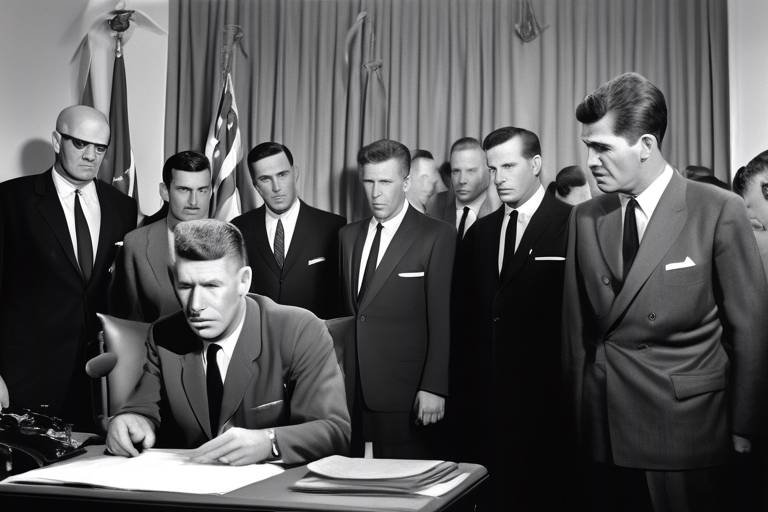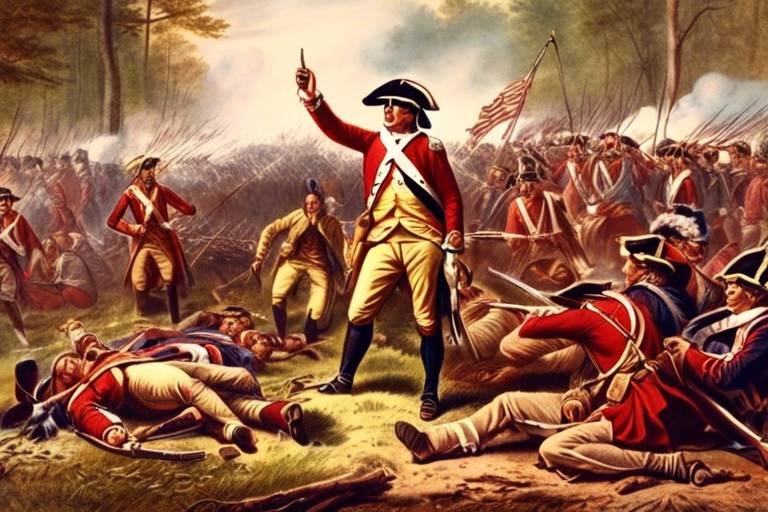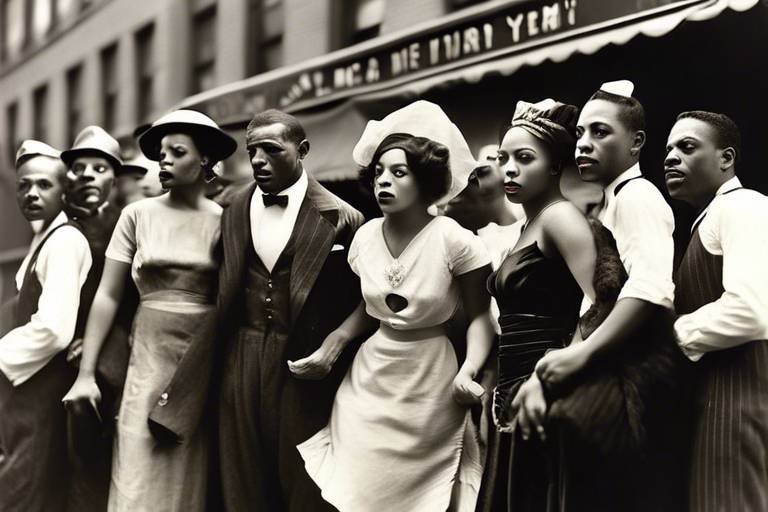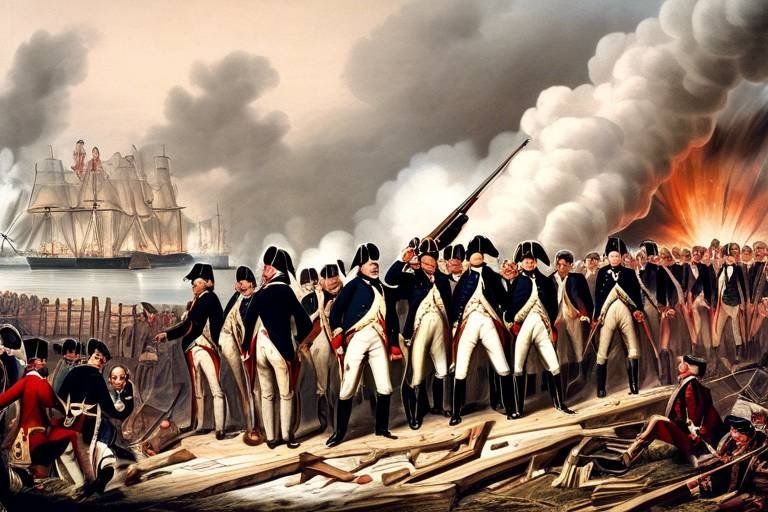The Crusades - Religious Wars and Their Consequences
The Crusades were a series of religious wars sanctioned by the Latin Church in the medieval period. These military campaigns, primarily against the Muslims in the Holy Land, had profound consequences on religion, culture, politics, and the world as a whole. The clash between the East and West during the Crusades shaped the course of history in ways that continue to reverberate today.

Origins of the Crusades
Exploring the historical background, impact on religion, culture, politics, and the lasting effects of the Crusades on the world today.
Delving into the factors that led to the initiation of the Crusades in the medieval period and the religious motivations behind them.
The origins of the Crusades can be traced back to the 11th century when the Byzantine Emperor Alexios I Komnenos sought military aid from the West against the Seljuk Turks. This plea for help sparked a series of military campaigns known as the Crusades, with the objective of reclaiming Jerusalem and the Holy Land from Muslim control.
One of the primary drivers behind the Crusades was the religious fervor of the time. The idea of embarking on a holy war to defend Christianity and secure access to sacred sites in Jerusalem captured the imagination of many in Europe. Popes, nobles, and commoners alike were inspired by the promise of spiritual rewards and the opportunity to demonstrate their faith through military action.
Moreover, the feudal system in Europe played a significant role in fueling the Crusades. Knights and lords saw the expeditions to the Holy Land as a chance to gain wealth, land, and prestige. The promise of plunder and new territories motivated many to take up the cross and join the crusading armies.
As the Crusades progressed, they evolved into complex military, political, and religious endeavors that shaped the course of history for centuries to come. The blend of religious zeal, political ambitions, and economic interests set the stage for a series of conflicts that would have far-reaching consequences.
Overall, the origins of the Crusades were deeply rooted in a mix of religious fervor, political intrigue, and economic incentives, setting the stage for a tumultuous period in medieval history.
Stay tuned for answers to common questions about the Crusades, their impact, and their legacy.

Key Crusades and Battles
The history of the Crusades is punctuated by significant military campaigns and battles that shaped the course of medieval history. Among the key Crusades, the First Crusade stands out as a pivotal event that marked the beginning of the series of religious wars. Launched in 1096, it culminated in the capture of Jerusalem in 1099, establishing the Kingdom of Jerusalem and setting the stage for subsequent Crusades.
Following the success of the First Crusade, the Second Crusade was called in response to the fall of the County of Edessa to the forces of Zengi in 1144. Led by prominent European rulers such as Louis VII of France and Conrad III of Germany, the Second Crusade ultimately ended in failure, highlighting the challenges and complexities of Crusader campaigns.
The Third Crusade, often referred to as the Kings' Crusade, saw the involvement of notable monarchs including Richard the Lionheart of England, Philip II of France, and Holy Roman Emperor Frederick I. Fought between 1189 and 1192, this Crusade aimed to recapture Jerusalem after its fall to Saladin in 1187. Although the Third Crusade did not achieve its primary objective of reclaiming the Holy City, it had lasting implications for Christian-Muslim relations.
One of the most renowned battles of the Crusades is the Siege of Jerusalem during the First Crusade. The successful siege led to the establishment of the Latin Kingdom of Jerusalem and symbolized the Crusaders' determination to secure control over the Holy Land. Additionally, the Battle of Hattin in 1187, where Saladin decisively defeated the Crusader forces, marked a turning point in the struggle for dominance in the region.
These key Crusades and battles not only shaped the military history of the medieval period but also had profound implications for the religious, cultural, and political landscape of the time. The legacy of these conflicts continues to reverberate in the modern world, influencing global perceptions and historical narratives.

Impact on Religion
The Crusades had a profound impact on the religious landscape of the medieval world, influencing Christianity, Islam, and Judaism in significant ways. The clashes between the Christian Crusaders and the Muslim forces not only shaped the beliefs and practices of these faiths but also fueled deep-seated animosities that reverberate to this day.
One of the key consequences of the Crusades on religion was the heightened sense of religious fervor and zeal among the participants. The idea of fighting for one's faith and reclaiming holy sites in the name of God became a central tenet of the Crusader ideology, shaping the way in which religious conflicts were perceived and justified.
Moreover, the Crusades led to a reevaluation of religious doctrines and interpretations, as theologians and scholars grappled with the ethical implications of holy war and the use of violence in the service of God. The concept of a "just war" emerged as a theological justification for military campaigns, further blurring the lines between religious duty and political ambition.
On a practical level, the Crusades also facilitated cultural exchanges and interactions between different religious communities, fostering a greater understanding of the beliefs and practices of others. While the conflicts were often brutal and destructive, they also provided opportunities for dialogue and engagement that contributed to a more nuanced understanding of religious diversity.
Overall, the impact of the Crusades on religion was multifaceted, shaping the way in which faith was understood, practiced, and contested in the medieval world and leaving a lasting legacy that continues to influence religious discourse and interfaith relations today.

Consequences for Europe and the Middle East
When examining the consequences of the Crusades for both Europe and the Middle East, it becomes evident that the impact was profound and far-reaching. In Europe, the Crusades brought about significant social, economic, and political changes. The constant mobilization of resources for the Crusades led to the development of new trade routes and markets, stimulating economic growth and transforming the feudal system.
Furthermore, the Crusades fostered cultural exchanges between the East and the West, introducing Europeans to new ideas, technologies, and goods. The encounters with the diverse cultures of the Middle East influenced European art, architecture, and literature, enriching the cultural landscape of the continent.
Politically, the Crusades contributed to the centralization of power in Europe as monarchs and rulers sought to consolidate their authority to fund and lead military campaigns. The Crusades also had a lasting impact on the relationship between the Church and the state, shaping the dynamics of power and influence in medieval Europe.
In the Middle East, the consequences of the Crusades were equally significant. The prolonged conflicts and invasions destabilized the region, leading to the fragmentation of political power and the weakening of established empires. The Crusades exacerbated existing tensions between different religious and ethnic groups, sowing the seeds of future conflicts.
Additionally, the Crusades had lasting effects on the cultural and religious landscape of the Middle East. The encounters with European crusaders influenced Islamic art, architecture, and scholarship, leading to the exchange of ideas and knowledge between the two civilizations. The Crusades also reinforced the sense of identity and unity among Muslims, shaping the development of Islamic societies in the aftermath of the conflicts.
Overall, the consequences of the Crusades for Europe and the Middle East were multifaceted and enduring, leaving a complex legacy that continues to influence the geopolitics and cultural dynamics of the regions to this day.

Legacy of the Crusades
When delving into the legacy of the Crusades, one cannot ignore the profound impact these religious wars have had on global relations, religious conflicts, and the perceptions of the East and West. The Crusades, spanning several centuries, left a lasting imprint on the world, shaping the course of history in ways that continue to reverberate today.
One of the most significant legacies of the Crusades is the long-standing tension between the Christian and Islamic worlds. The conflicts and interactions during the Crusades established a foundation of mistrust and animosity that persists in various forms to this day. This historical backdrop has influenced modern geopolitical dynamics and religious conflicts, underscoring the enduring legacy of the Crusades.
Furthermore, the Crusades played a pivotal role in shaping cultural exchanges and trade routes between Europe and the Middle East. The interactions between different civilizations during the Crusades led to the exchange of knowledge, technologies, and goods, contributing to the flourishing of art, architecture, and commerce in the region.
Moreover, the Crusades left a mark on the collective memory of societies involved, with stories of heroism, betrayal, and tragedy passed down through generations. The legacy of the Crusades is embedded in the cultural narratives of various communities, influencing identities and perceptions of self and others.
Additionally, the Crusades had a profound impact on the development of military strategies, diplomacy, and international relations. The lessons learned from the Crusades, both successes and failures, continue to inform contemporary approaches to conflict resolution and peacebuilding.
Overall, the legacy of the Crusades serves as a reminder of the complexities of history and the enduring consequences of past actions. By examining the legacy of the Crusades, we gain valuable insights into the interplay of religion, politics, and culture, shedding light on the intricate tapestry of human experience.

Crusader States and Territories
The establishment of Crusader states in the Levant marked a significant chapter in the history of the Crusades. These territories were created by the European Christian forces following their conquests in the Holy Land during the First Crusade. The most notable Crusader states included the Kingdom of Jerusalem, the County of Tripoli, the Principality of Antioch, and the County of Edessa.
Each of these states had its own unique governance structure, blending elements of European feudalism with local customs and traditions. The Crusaders implemented a feudal system in these territories, with nobles and knights granted lands in exchange for military service. This system helped to maintain control over the conquered lands and establish a semblance of stability amidst the ongoing conflicts.
One of the key challenges faced by the Crusader states was the constant threat of invasion from Muslim forces in the region. This led to the construction of formidable fortifications and castles to defend against incursions. The Crusaders also engaged in diplomatic alliances and trade agreements with neighboring Muslim rulers, demonstrating a complex web of political interactions in the Levant.
The presence of the Crusader states had a lasting impact on the local populations, introducing new agricultural techniques, architectural styles, and cultural exchanges. The Crusaders brought with them advanced military tactics, technology, and administrative practices that influenced the development of the region.
However, the Crusader states faced internal strife, external pressures, and shifting alliances that ultimately contributed to their gradual decline. The loss of key cities, such as Jerusalem and Acre, to Muslim forces in the late 12th and early 13th centuries marked the beginning of the end for the Crusader presence in the Levant.
Despite their eventual demise, the Crusader states left a lasting legacy on the region, influencing the political landscape and cultural heritage of the Levant. The remnants of their castles and fortresses stand as a testament to the tumultuous history of the Crusades and the enduring impact of medieval European presence in the Middle East.

Criticism and Reevaluation
When looking back at the Crusades through a modern lens, it is inevitable to encounter a myriad of criticisms and calls for reevaluation. One of the primary criticisms revolves around the motives behind the Crusades. While the religious fervor and the desire to reclaim the Holy Land were often cited as the driving forces, many scholars argue that underlying political and economic interests played a significant role in fueling the conflicts.
Furthermore, the methods employed during the Crusades have come under scrutiny. The brutal nature of the warfare, including massacres and atrocities committed by both sides, has led to questions about the ethical conduct of the Crusaders and the impact of their actions on the affected populations. The pillaging of cities and the treatment of non-Christian inhabitants have been particularly contentious issues.
Moreover, the historical significance of the Crusades has been reevaluated in recent years. While they were once glorified as noble endeavors to protect Christian interests, modern interpretations highlight the complex and often destructive nature of these campaigns. The Crusades are now seen as pivotal events that shaped the course of history, influencing not only religious dynamics but also political power structures and cultural exchanges.
In light of these criticisms and reevaluations, there is a growing awareness of the need to approach the study of the Crusades with a critical eye and a nuanced understanding of the context in which they took place. By acknowledging the multifaceted nature of these conflicts and their far-reaching consequences, we can gain a deeper insight into the complexities of medieval history and the legacy it has left on the world today.

Lessons Learned and Modern Parallels
Exploring the historical background, impact on religion, culture, politics, and the lasting effects of the Crusades on the world today.
Delving into the factors that led to the initiation of the Crusades in the medieval period and the religious motivations behind them.
Highlighting significant Crusades such as the First, Second, and Third Crusades, along with key battles like the Siege of Jerusalem.
Examining how the Crusades influenced Christianity, Islam, and Judaism, shaping religious beliefs and practices in the aftermath.
Discussing the socio-political repercussions of the Crusades on European and Middle Eastern societies, including power shifts and cultural exchanges.
Analyzing the enduring legacy of the Crusades in shaping global relations, religious conflicts, and perceptions of the East and West.
Exploring the establishment and administration of Crusader states in the Levant and the impact on local populations and governance structures.
Addressing modern perspectives on the Crusades, including criticisms of their motives, methods, and the reevaluation of their historical significance.
Reflecting on the lessons learned from the Crusades and drawing parallels to contemporary religious conflicts and geopolitical tensions around the world.
Frequently Asked Questions
- What were the main reasons behind the initiation of the Crusades?
The Crusades were primarily motivated by religious fervor, the desire to reclaim holy lands, and the promise of spiritual rewards for participants. Additionally, political and economic factors, as well as the quest for power and territory, played significant roles in sparking the Crusades.
- How many Crusades took place, and what were some of the key battles?
A total of nine major Crusades occurred between the 11th and 13th centuries. Some of the key battles include the Siege of Jerusalem, the Battle of Hattin, and the Siege of Antioch. These conflicts shaped the course of history in the medieval period.
- What impact did the Crusades have on religious beliefs and practices?
The Crusades had a profound impact on Christianity, Islam, and Judaism. They led to the spread of religious ideas, cultural exchanges, and the development of religious tolerance in some regions. However, they also fueled religious tensions and conflicts that continue to resonate today.
- How did the Crusades affect the socio-political landscape of Europe and the Middle East?
The Crusades resulted in significant social and political changes in both Europe and the Middle East. They influenced power dynamics, trade routes, and cultural interactions between different civilizations. The legacy of the Crusades can still be seen in the geopolitical realities of the present day.
- What lessons can be learned from the Crusades, and are there modern parallels?
One of the key lessons from the Crusades is the importance of understanding and respecting diverse cultures and beliefs. The conflicts of the past serve as cautionary tales for present-day societies facing similar challenges. By studying the Crusades, we can gain insights into navigating contemporary religious conflicts and geopolitical tensions.



















